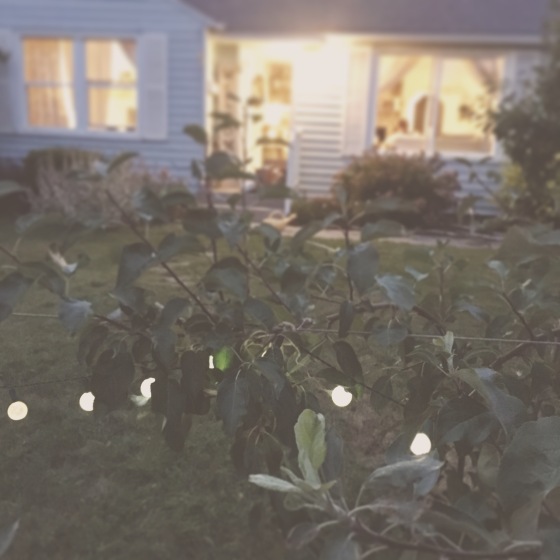As my faith has shifted I have become underwhelmed with much of my tradition. I’ve hodge-podged new rituals out of other practices and looked in dusty nooks of this one for meaningful expressions of a spirituality that no longer fits in the boxes I was given.
But one ritual has never lost it’s mystery to me. Even when I couldn’t really consider myself a Christian I appreciated communion.
Because this is Christianity’s addition to the universal groaning. Not a religious rite for the “in” crowd, but a deeply human, bestial cry. This is our admission that things are not as they should be, that we are broken and bleeding and desperate for a remedy.
Spilled wine may be a sacred message from the Divine; there is solidarity in the bits left on the plate and the stain in the glass after it’s all drunk down. We are not clean, despite our best efforts to convince ourselves we are, and when we eat we reveal our primal nature. Chewing is savage, tasting, swallowing, digesting is basal. We are animals, but we are trying to be more.
Communion doesn’t require any knowledge of theology, any credentials, any training. You don’t need to know anything or be anything but human. Communion is not for theorists, it’s for those of us who grieve in real time. It’s for those of us aware of the breaking and the bleeding already happening all around us. We consume this bread and wine in an effort to overcome some part of us only capable of consuming – we want to offer something here, we want to join in the bringing of hope and healing.
I have felt the body break. I have held the bread in my hands and torn off a piece with indignation because of the ways my world feels torn, the ways my own body inherits the trauma of living – feels tired and heart sore and broken.
I have tasted bitter wine. I have begged to let this cup pass only to see the blood swish in a glass before me in solemn beckoning: your turn, kid.
Eucharist is the desperate complaint of a burdened species staring in horror at all the broken bodies. Christ’s, yes, and the countless, nameless multitudes who audaciously hoped for better than what the collective was offering. The thinkers and healers, the poets and prophets. The Anne Franks tucked in attics hiding quiet. The Martin Luther King, Jrs marching proud with bullhorns. The Buddhas and Ghandis and Francis of Assisis. Communion is our mourning and our “thank you.” When Jesus did it the first time he started with thanksgiving.
Gratitude which is best expressed in our promise to continue. Communion is our covenant to the legacy of pouring out. We are the people who break and bleed. We pass the cup around and tear the bread and as the crumbs tumble to the earth we commit ourselves to the work of restoring it. We look to the founder of this faith in hopeful searching: show us how to break this way, let us be the people willing to lay down our lives for the rest of the “you” we recite. This is our gratitude overflowing and looking for outlets.
On Sundays our people come over and we have dinner later than we always plan and when we’re ready we make a circle around the bread and wine. Last week it was a graham cracker. It is essential we do it together. Communion is inherently communal. We take it soberly among the sounds of children playing and at least one of us usually getting up to give attention to a crying baby. We take it with bellies full on account of each other and hearts postured toward one another.
We take turns saying, “This is Christ’s body broken for you and his blood poured out for you,” as we serve one another in this ancient sacrament. We join with people around the world and woven through time in a ritual based on the last dinner Jesus ate with his friends. It’s a practice instituted during the hours before the darkest ones in Jesus’ life. Communion is a callback to blood on a doorway, an invitation to engage with what will certainly hurt you because life hurts when you’re paying attention.
We don’t gather around graham crackers for answers, we gather with questions. I can keep communion when I can keep nothing else because it is not meant to be sanitized and served in ceremony by a holy priest, it’s meant to be done in dusty places, in dark and ominous times, between all the people too unholy, too unclean, too unprepared for ordination. Communion is not for the religious, it’s for the rest of us.
Hey you Fabulous Reader, you!
Before you go, I’ve created a reader survey which is both quick and anonymous. If you haven’t already, I’d love if you could take it! Easy peasy for you and a huge help for me! :)

Beautiful Krysann. I LOVE this. I don’t even have words for it, but the overwhelming feeling of “everything makes sense now” was present as I read. : ) Thanks for not neglecting your gift and sharing it with us! : )
LikeLike
<3 You're very kind. Thank you for reading and for sending that Communion homily! So good.
LikeLike
Beautiful post on humanity and Christ going before us.
Cheers,
Leah
LikeLike
Thank you, friend! <3
LikeLike
Amazing post:)
LikeLike
Thank you so much for reading! <3
LikeLike
I love this: “This is our admission that things are not as they should be, that we are broken and bleeding and desperate for a remedy.” Communion for Believers is also a celebration of the remedy – a remembrance of Christ who came to begin the process of setting things right!
LikeLiked by 1 person